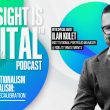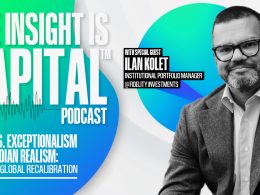The Three Types of Financial Forecasters
by Cullen Roche, Pragmatic Capitalism
I just finished reading an excellent book called "Superforecasting: The Art and Science of Prediction" by Philip Tetlock and Dan Gardner. The authors do a wonderful job of putting our reality in the proper perspective and then helping us understand that reality so we can process potential future outcomes in a manner that will have high probability outcomes. The opening line of of the book is "We are all forecasters". In essence, Tetlock and Gardner show us that everything we do in life requires an implicit or explicit forecast. This is a crucial understanding for proper portfolio management and financial planning.\0xB9
One of the first things an intelligent asset allocator must do is make expected return forecasts for the assets they own. After all, this is the only reasonable way to build a cash flow analysis around future expected withdrawal rates. What's disconcerting in the current world of growing index fund popularity is that many of these forecasters don't realize they're making forecasts. Or more commonly, they're making forecasts and they're doing it in a very low probability manner. The primary example in recent history is many large pension funds who basically took an extrapolative expectations approach to forecasting and assumed that stocks and bonds would generate something close to their historical returns. As a result the funds built-in unreasonably high withdrawal rates and now find themselves in a precarious situation.
Understanding what type of financial forecaster you are can be crucial to building a sensible financial plan and improving your odds of financial success. The following guide will help you better understand what type of forecaster you are so you can improve the way you think about portfolio construction:
The Foolish Forecaster - The foolish forecaster is the person who thinks they can predict very short-term movements in the markets. We know, empirically, that short-term movements in most financial assets are largely random. However, the longer you extend your time horizon the greater you increase your odds of generating a positive outcome. For instance, a 5 year US Government Bond will have largely random daily price movements. Who knows why interest rates moved incrementally today? But we know, with a near 100% probability what that bond will do over a 5 year time period. The foolish forecaster ignores this empirical randomness and instead tries to predict the very short-term all the while flipping coins as he churns up a high tax and fee bill.
The Oblivious Forecaster - The oblivious forecaster knows that the future is difficult to predict, but has no model to make reasonable future return forecasts. They sometimes shun forecasts without knowing that they're engaging in implicit types of forecasting. As a result, their default position is almost always extrapolative expectations. That is, the future will look something reasonably similar to the past. The Oblivious Forecaster relies heavily on historical data as it gives them comfort that they're being empirical, however, they ignore the fact that their data sets are relatively thin and unlikely to reflect the future. This is the type of forecasting that leads to the pension fund disaster. Extrapolating past returns into the future breaks the first disclaimer in all Wall Street literature (you know, "past returns don't reflect future performance") but remains the go-to way in which most people build their portfolios. Unfortunately, in the world of online backtesting this type of forecasting appears to be getting more prominent as more and more historical data becomes available.
The Probabilistic Forecaster - As I've noted in the past, great investors think in terms of probabilities. The probabilistic forecaster knows that the future is very difficult to predict, but also knows that the future won't necessarily look like the past. They build a rigorous empirical understanding of the financial assets they own and place those instruments in the appropriate time horizons thereby reducing the odds of forecasting error. They understand the dangers of short-termism, but also know that a reasonable cash flow model must incorporate the dangers of the long-term as well. This rigorous empirical approach results in a high(er) probability of financial success by building reasonable assumptions around many future potential outcomes.
As Tetlock and Gardner emphasize, "we are all forecasters". The key question is, what type of forecaster are you?
\0xB9 - See also, Why Forecasts are Necessary
Copyright (c) Pragmatic Capitalism















